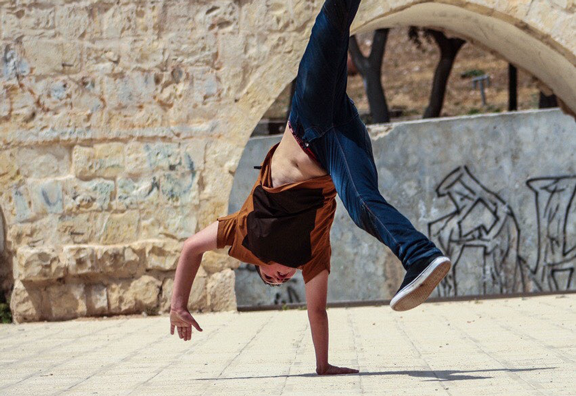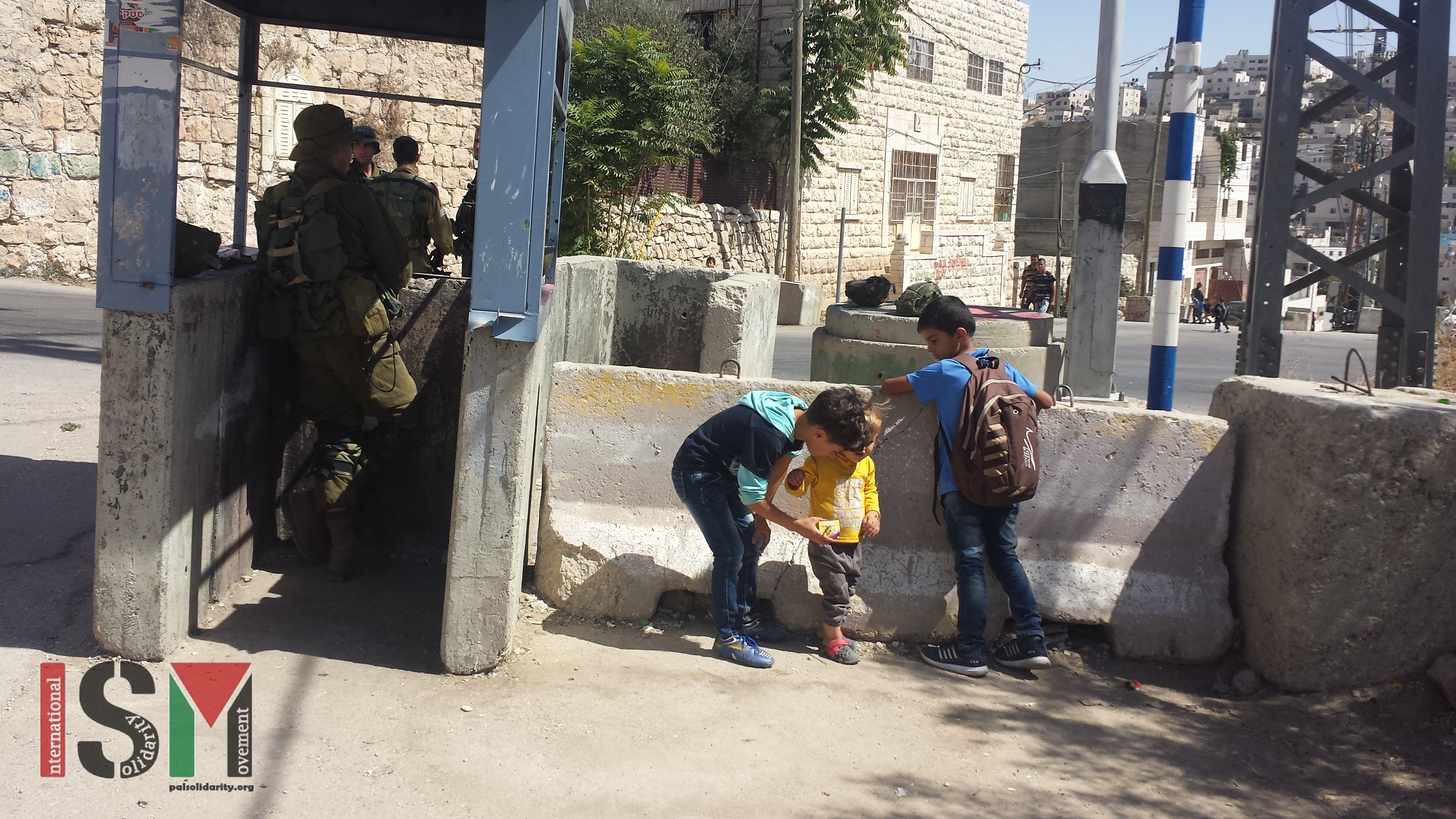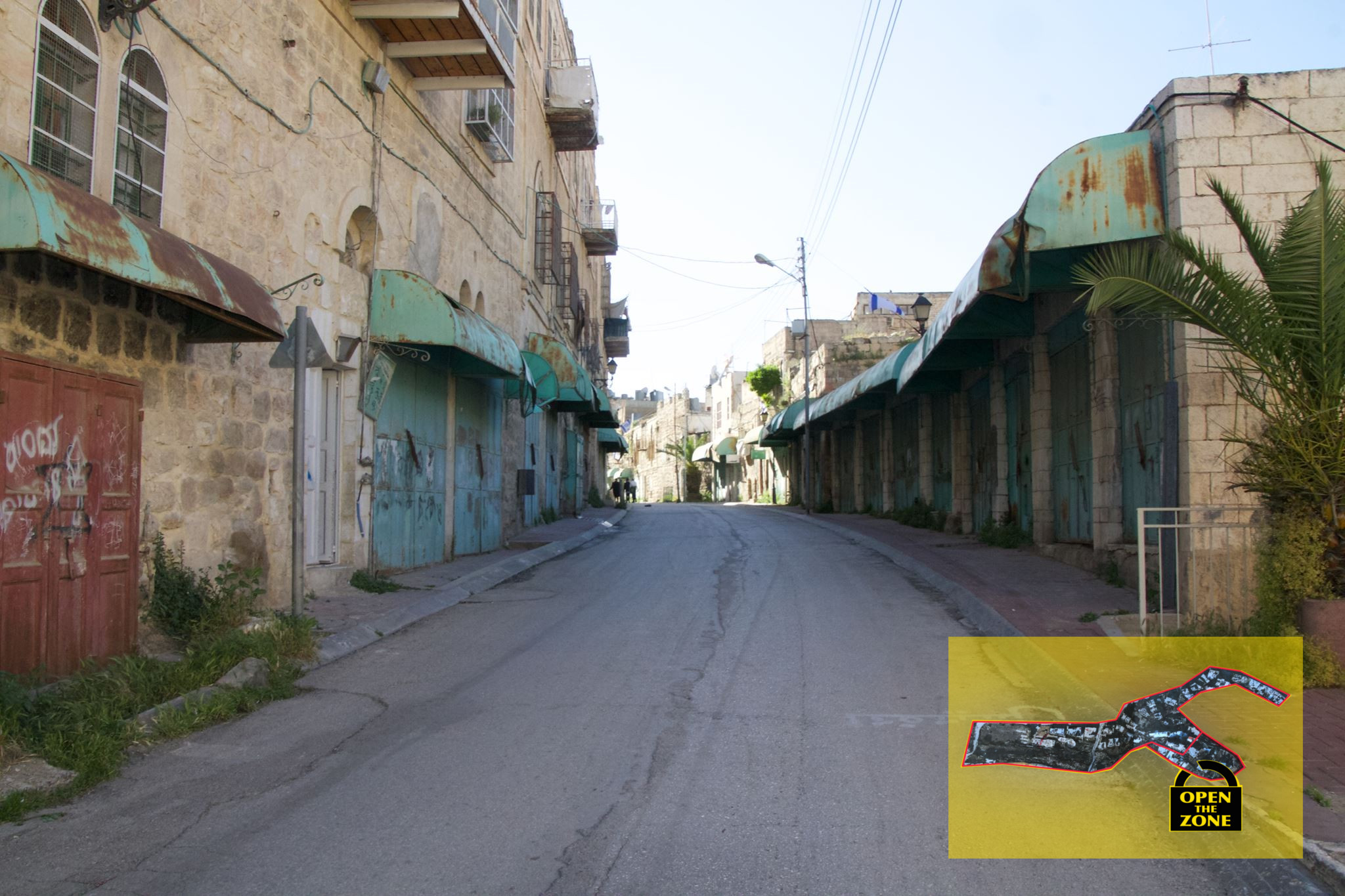Tag: Ethnic Cleansing
-
Bring Shadi home!
16th October 2016 | International Solidarity Movement, Firefund | illegally annexed East Jerusalem, occupied Palestine Shadi and his friend Ahmad were arrested at a bus stop in Jerusalem. A group of East Jerusalem illegal settlers called police to investigate the two boys, on suspicion of being Palestinian. In the ensuing process of arrest, interrogation, and…
-
Photo story: Jewish holidays bring harassment to occupied Hebron
6th October 2016 | International Solidarity Movement, al-Khalil team | Hebron, occupied Palestine The 3rd and 4th of October marked the celebrations of the Yewish New Year. In the occupied West Bank, Jewish holidays, celebrated by the settlers from the illegal settlements. This usually translates to an increase in harassment, restrictions and the presence of…
-
Continuing ethnic cleansing in closed military zone in Hebron
5th October 2016 | International Solidarity Movement, al-Khalil team | Hebron, occupied Palestine Israeli forces in occupied al-Khalil (Hebron) are continuously increasing their efforts of ethnic cleansing in the Tel Rumeida neighborhood. In the area, declared a ‘closed military zone’ for almost a year, Israeli forces do everything imaginable to force the Palestinian population to…



